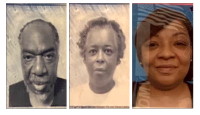From Limitations to Empowerment: Transforming Lives of Disabled Persons
Dr. Syeda Afroza Zerin
Associate Professor
Department of Law
American International University-Bangladesh
Shaila Ahmed
Senior Assistant Professor
Department of English
American International University-Bangladesh
Individuals with disabilities are enabled to the same rights as all citizens, including fundamental
civil and political liberties. Although the Universal Declaration of Human Rights (1948) and the
International Covenants on Civil and Political Rights (1966) do not explicitly mention the rights
of persons with disabilities, it is generally assumed that these rights apply universally to all
humanity. The UN first addressed the rights of disabled individuals with a global declaration in
1971.
 Bangladesh aligns itself with several international standards regarding the rights of people with
Bangladesh aligns itself with several international standards regarding the rights of people with
disabilities. In acquiescence with both national and international obligations, the Government of
Bangladesh established a National Strategy on Disability in 1995, entitling disability as a priority
in policymaking. The National Education Policy of 2010 further emphasizes the need for
enhanced training for teachers to better support children with special needs.
Additionally, the government has implemented a quota system: 1% of positions in first- and
second-class jobs (including the Bangladesh Civil Service) are reserved for persons with
disabilities and those with autism, while 10% of class three and class four positions are
designated for disabled individuals and orphans. Notably, the age limit for entering these roles
has been extended to 40 years.
However, the effectiveness of these policies is contingent on providing a supportive environment
for the primary education of children with disabilities. The 2013 Persons with Disabilities Rights
and Protections Act introduced numerous regulations aimed at safeguarding the rights of
disabled individuals. Despite these national and international commitments, the reality remains
that many persons with disabilities in Bangladesh continue to face significant barriers to
accessing their rights and entitlements.
In Bangladesh, access to education for children with disabilities is severely limited. Several
factors contribute to this challenge, including an unequal educational system, a rigid and
unfriendly curriculum, ignorance among parents, inadequate teacher training, and a conservative
environment in many institutions. These barriers hinder the educational advancement of disabled
children.
Currently, there are only thirteen primary schools specifically designed for children and adults
with disabilities in the country. Seven of these cater to children with hearing impairments, five to
those with visual impairments, and a few serve autistic children. Unfortunately, there are no
alternative educational arrangements for children with intellectual disabilities.
A significant reason for the deprivation of rights among disabled individuals is the lack of
awareness within society. Social barriers and limited understanding contribute to this situation.
Furthermore, the existing disability-related laws and policies in Bangladesh are largely
inadequate and predominantly welfare-oriented. These laws should be revised to ensure the full
human rights of disabled individuals.
To promote and protect these rights, it is essential to establish monitoring mechanisms to
evaluate whether disabled persons are receiving appropriate opportunities. Consciousness among
the public regarding the rights of disabled individuals is alarmingly low and needs to be
significantly increased. Utilizing electronic and print media for promotional campaigns can help
raise awareness about these rights, particularly through engaging audio and video content.
New legislation is also required in the educational area to guarantee access and opportunities for
disabled individuals. Several NGOs, such as the Centre for Disability in Development (CDD),
Bangladesh Disabled Development Trust (BDDT), and Handicap International, are making
commendable efforts to advocate for the rights of disabled persons.
However, deeply rooted cultural attitudes and fallacies about disability continue to impede
progress. It is imperative to take effective initiatives to secure a better future for disabled
individuals in our country.




-shava_09-jan-2023-pic-02.jpg)






